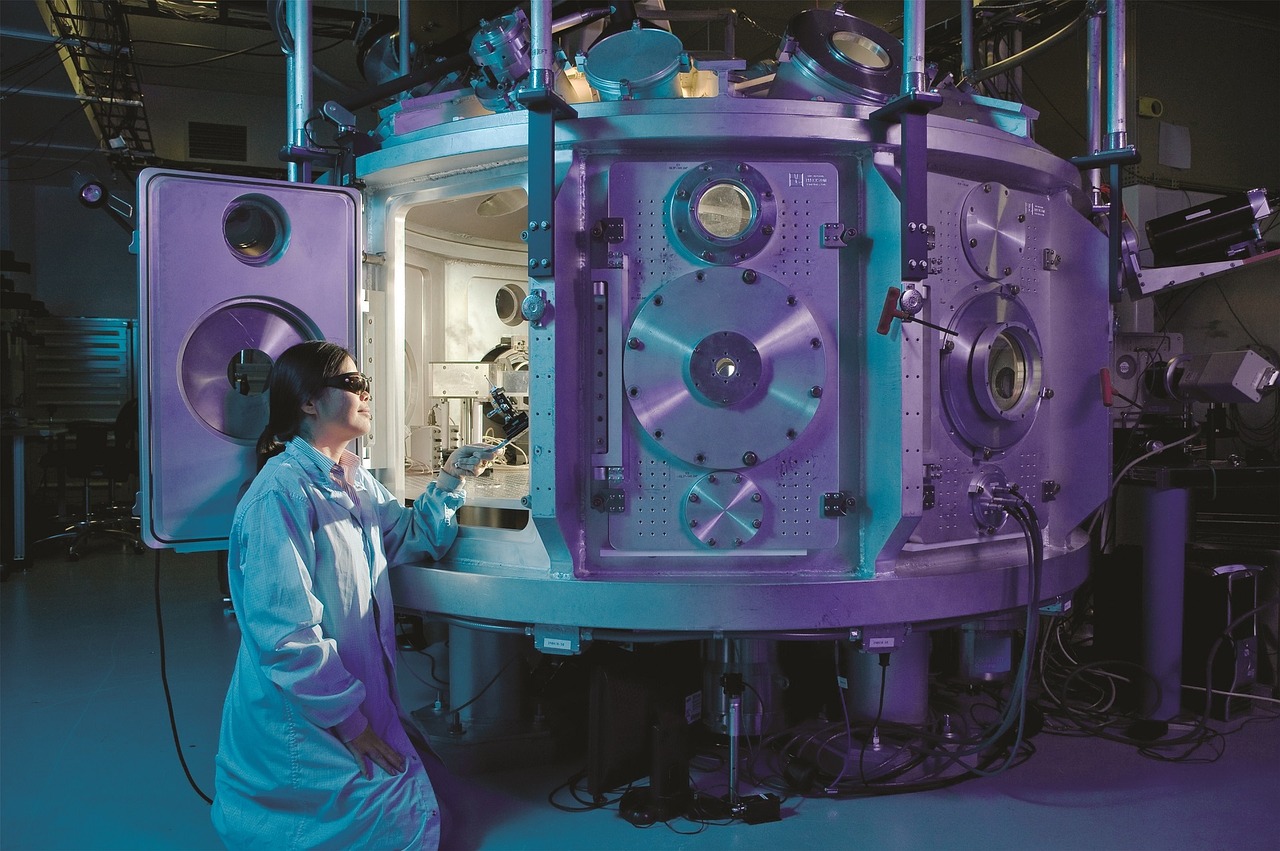A while back, I saw a screenshot of a conversation between Luke Barnes and an atheist who question Barnes’ scientific credentials, with Barnes mentioning that PhD. in Astronomy from Cambridge, has as a post-doctoral researcher at the Swiss Federal Institute of Astronomy (ETH) and the University Of Sydney. Luke Barnes also co-authored a book with Geraint F. Lewis titled A Fortunate Universe: Life In A Finely Tuned Cosmos, which I highly recommend. I posted the comment to the Cerebral Faith Twitter account amused how atheists just can’t seem to wrap their head around the idea that a Christian Theist might also be a competent scientist. This is not the first time this has happened. Before this, I saw atheists accusing Sarah Silviander of not being a real scientist because of her faith in Christ.
I said, “I find it funny how the idea that a Christian can be a competent scientist just baffles the atheist mind.” In response to this tweet, a person responded that it shouldn’t be baffling at all, and that the fact that these Christians are also scientists is due to the psychological phenomenon of compartmentalization. I responded “Or maybe they aren’t compartmentalizing anything because Christianity and science aren’t in conflict. Only some interpretation of The Bible (e.g young earth creationism) are in conflict modern scientific theories. I know for a fact that Barnes is not in the Ken Ham category.” to which the atheist tweeter responded “Most biblical miracles require a suspension of the validity of scientific theories. The earth stopped spinning and/or altered it’s orbit at one point, in pretty clear violation of gravity, laws of motion, ect.”
From what I understand of his tweet, his concern was that if God can, has and does break through to perform what is scientifically impossible, then we can’t depend on scientific theories. Hence if you want to committed to science, you must reject Christian theism. God’s ability to break into the natural world means we cannot rely on our scientific theories (because God could override natural laws at any moment). Only if there is no intervention, and natural cause and effect are all that occur, then and only then could we really rely on science. One could still believe in God of course, but it would have to be a Deistic concept of God, because on the Deist’s view God created the universe at the beginning, but does not and has not interacted with it since then.
How should one respond to such an argument?
First, According To The Bible, Miracles Are Rare Events
Read that again. According to The Bible, miracles are rare events. Most people are surprised when I say that. “Say what? Whatchu talkin’ bout, Willis?” and I’m like “My name’s Evan.” The truth is, you won’t see miracles occurring in biblical history except for during the lives of a few individuals: Moses, Elijah, Elisha, Jesus, and the apostles. Apart from the narratives detailing the ministries of these few individuals, miracles are scant in biblical history. You might see one pop up now and again (e.g Samson’s superhuman strength), but most of God’s activity as recorded in The Bible is what theologians refer to as “ordinary providence”. Ordinary providence is when God causes things to happen through the actions of human decisions, natural causes. Like someone being in the right place at the right time to help you if you’re in need. The events of the book of Esther were orchestrated by God, but God did not do one thing in that book’s narrative that wasn’t scientifically explicable.
The reason people are under the impression that miracles were just happening all the time in The Bible is that there were plenteous during the ministries of Moses, Elijah, Elisha and Jesus and The Apostles. But it should be noticed again that these were all clustered together during these prophets’ lifetimes. This is only a tiny portion of The Bible’s recorded 4,000-year history.
Therefore, since according to The Bible, God’s overidence of the laws of nature is exceedingly rare, we should expect most things that occur to have non-supernatural explanations behind them. Of course, we can still recognize this as part of God’s ordinary providence and can and should give Him the glory.
Second, Miracles Stand Out BECAUSE Of What We Know From Science
Miracles, when they do occur, stick out like sore thumbs. Why is that? Why are they so easily distinguishable from what is scientifically explicable? Precisely because we know so much about how the universe works. We know that nature doesn’t cause certain things to happen. To use my atheist tweeter’s examples; we know that the Earth doesn’t just stop spinning and start again. This is based on what we know of gravity and the laws of motion. We know that dead bodies don’t just come back to life. This is based not only on personal experience but on biological knowledge. Cells just don’t regenerate. Entropy only goes in one direction….unless God does something to intervene. By the way, there’s an abundance of historical evidence that he did this to Jesus of Nazareth.
The reliability and uniformity of natural laws is precisely the reason why miracles stand out!
In fact, you don’t need to have a Ph.D in any scientific field to know that some things just can’t naturally happen. As C.S Lewis put it in his book “Miracles”, “The idea that the progress of science has somehow altered this question is closely bound up with the idea that people “in olden times” believed in [miracles]“because they didn’t know the laws of Nature.” Thus you will hear people say, “The early Christians believed that Christ was the son of a virgin, but we know that this is a scientific impossibility.” Such people seem to have an idea that belief in miracles arose at a period when men were so ignorant of the cause of nature that they did not perceive a miracle to be contrary to it. A moment’s thought shows this to be nonsense: and the story of the Virgin Birth is a particularly striking example. When St. Joseph discovered this his fiancee was going to have a baby, he not unnaturally decided to repudiate her. Why? Because he knew just as well as any modern gynecologist that in the ordinary course of nature women do not have babies unless they have lain with men. No doubt the modern gynecologist knows several things about birth and begetting which St. Joseph did not know. But those things do not concern the main point–that a virgin birth is contrary to the course of nature. And St. Joseph obviously knew that.”
Whenever Jesus performed a miracle, he took the witnesses by surprise. When you read the gospels, you’ll often find the crowds being surprised at Jesus’ miracles. They didn’t expect to see lepers being immediately cleansed from their disease merely by Jesus’ touch (Matthew 8:2-4). Peter knew that whenever someone entered the water, they were submerged in it rather than being able to stand on top of it. This is why his faith wavered and he sunk after a single moment of being able to walk directly on top of it (see Matthew 14:25-31). No one expected the dead to rise except for at the universal resurrection at the end of days, which is why everyone was shocked when Lazarus came out of his tomb (John 11:38-44) and why no one was anticipating Jesus’ resurrection (Luke 24:5-11) in spite of his repeated predictions of it (Matthew 12:39-40, Matthew 16:11, Mark 8:31-38, John 2:18-22, John 10:17-18). Those who witnessed Jesus’ miracles were astonished because these kinds of things just didn’t happen.
Discover more from Cerebral Faith
Subscribe to get the latest posts sent to your email.





Glad to inspire a post.
I get your points, but they don't change the fact that science is only reliable given that the natural is all there is.
Given the natural: I drop a rock on earth, it falls. Science can cite gravity at work and the math holds up.
Given the supernatural: I drop a rock on earth, it might fall. That's all we can say. We can't even factor in probability because, even though miracles may have historically been rare as the bible says, there's no reason why God or any supernatural power could not say "from this moment on miracles will be the normal" and each drop results in the rock flying off in a different direction.
Not at all, Science is still reliable even when God supersedes a law(rarely). After all there was once nothing, not even a "once",and "suddenly" a universe appeared.
That isn't a very convincing rebuttal. Essentially all you've done is reiterate the original point.
Also, funny how you know that "rocks flying off in a different direction" would be a miraculous events. That just reinforces my point that natural causes are the norm and miracles are the exception. God created a world that is rational and comprehensible. In fact, in Jeremiah 33, God used the reliability of the laws of nature as an analogy of his faithfulness.
As Dr. Jason Lisle wrote "God’s logic is built into the universe, and so the universe is not haphazard or arbitrary. It obeys laws of chemistry that are logically derived from the laws of physics, many of which can be logically derived from other laws of physics and laws of mathematics. The most fundamental laws of nature exist only because God wills them to; they are the logical, orderly way that the Lord upholds and sustains the universe He has created." — from the article "God & Natural Law"
by Dr. Jason Lisle on August 28, 2006. https://answersingenesis.org/is-god-real/god-natural-law/
You said: "I get your points, but they don't change the fact that science is only reliable given that the natural is all there is."
You are simply begging the question here. Furthermore, it has been convincingly argued that the combination of naturalism and evolution are self-refuting as they rely on faculties which have been shaped by processes which are aimed, not at producing true beliefs, but at survival and reproduction. On this view, many of our beliefs are false. Take religion as an example, it is taken to be a false belief formed for evolutionarily advantageous reasons (sense of community etc.). Therefore, if we evolved by processes not aimed at truth then how can we trust anything our cognitive faculties produce – including the belief in naturalism? It follows, then, that your fundamental belief that the natural world is all that exists is self-referentially incoherent.
Well put, Alexander. 🙂